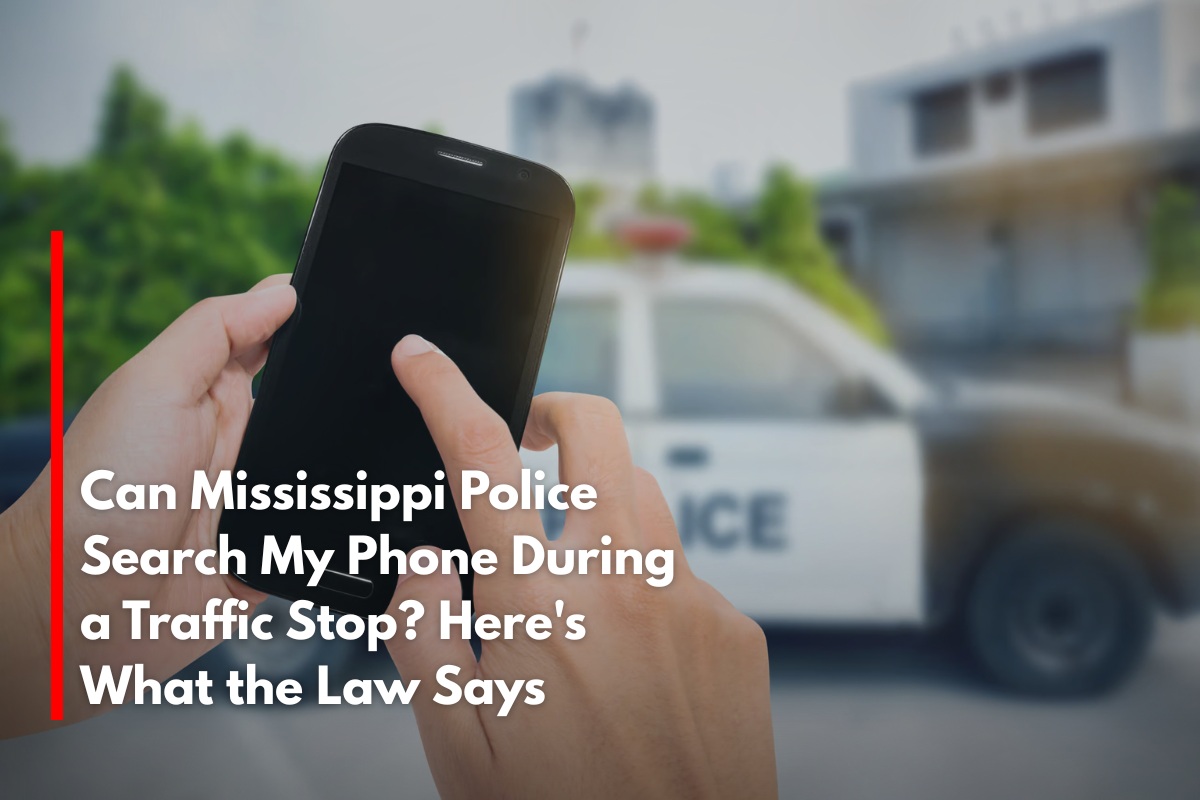In Mississippi, whether police can search a person’s phone during a traffic stop is governed primarily by the Fourth Amendment protections against unreasonable searches and seizures. Here is what the law says about cell phone searches by police during traffic stops in Mississippi.
Fourth Amendment and Privacy Rights
The U.S. Constitution’s Fourth Amendment protects individuals from unreasonable searches and seizures, requiring law enforcement to obtain a warrant based on probable cause to conduct a search in most cases—including searches of cell phones. Phones hold extensive personal information, which makes these protections especially significant.
Searches During Traffic Stops
During a routine traffic stop, police in Mississippi generally cannot search a phone without a warrant or explicit consent. The fleeting nature of traffic stops does not provide sufficient grounds alone for searching a phone. Police must have probable cause or an applicable exception for such a search to be lawful.
Consent and Voluntary Searches
If an officer asks to search a phone, the driver has the right to refuse. Consent must be voluntary and not coerced for a search to be valid. Drivers are advised to clearly and politely say, “I do not consent to a search,” if they wish to refuse. Consent statements made under pressure or threat may not hold up legally.
Exceptions: Arrest and Emergencies
Exceptions to the warrant requirement exist in cases of an arrest, or when exigent circumstances justify a search without a warrant, such as emergencies involving public safety or risk of evidence destruction. For example, if the phone contains information critical to preventing imminent harm, police may access it without a warrant, but these cases are narrowly defined and situational.
What To Do If Stopped
Mississippi residents should know their rights during traffic stops. One can legally record interactions with officers. It’s important to remain calm, keep hands visible, and communicate clearly. If unsure about consent or questioning, politely demand legal counsel before agreeing to searches or answering detailed questions.
Legal Recourse for Unlawful Searches
If a phone is searched unlawfully, any evidence obtained can be challenged and potentially excluded in court. Victims of unlawful searches are encouraged to seek advice from qualified criminal defense attorneys to protect their rights and contest abuses of police authority.
In summary, police in Mississippi cannot search a driver’s phone during a traffic stop without a warrant or the driver’s clear, voluntary consent. Exceptions exist for arrests and emergencies but are limited. Knowing these rights helps drivers protect their privacy and minimize legal complications during police encounters. Remaining respectful but firm about refusing unwarranted searches is critical for asserting constitutional protections in Mississippi.
Sources
(https://www.mccormick-lawfirm.com/blog/pulled-over-8-rights-you-need-to-know-to-stay-cool-and-collected/)
(https://www.stroudlawyers.com/civil-rights/mississippi-wrongful-search-seizure/)
(https://www.aclu-ms.org/en/know-your-rights/police-encounters)
(https://www.fletc.gov/sites/default/files/imported_files/training/programs/legal-division/downloads-articles-and-faqs/research-by-subject/4th-amendment/searchingavehicle-consent.pdf)
(https://law.justia.com/cases/mississippi/supreme-court/1965/43346-0.html)











